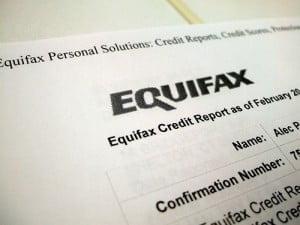
A recent report on lending revealed that 46 percent of all loans made in the consumer credit market were made to debtors with a FICO score over 750. That’s nearly half! And it’s not that many debtors are suddenly seeing their credit scores shoot up, it’s that lenders are still finicky about who they will lend to. Are the days of 680 being considered a good credit score behind us? Maybe, at least for now. If that’s the case, how can a debtor just exiting bankruptcy expect to compete for the scarce loans available once they’re ready to purchase a home or car in a few years?
Let’s take a look at a few tips:
- Once a debtor exits bankruptcy, they need to immediately begin rebuilding their credit using secured credit cards and other tools. If they have debt which has survived the bankruptcy discharge, paying those debts in a timely manner will go a long way to increasing their FICO score.
- If a debtor is a few years out of bankruptcy and they are ready to purchase a home or car, they need to plan ahead. A few months before applying for a mortgage or car loan, get a copy of your credit report along with your FICO score. If there are any discrepancies take the time to dispute them. The dispute resolution process will take time; this is why you need to begin planning financially before you go out to look for a car or house.
- Post-bankruptcy debtors need to be careful that they do not have too little or too much debt. While maxing out your credit cards is obviously not a good move, not using your credit cards at all is also detrimental to your FICO score. Post-bankruptcy debtors should make sure to avoid maxing out their credit cards; but also make sure that they are making regular credit card purchases which they pay off every month.

 A recent report on lending revealed that 46 percent of all loans made in the consumer credit market were made to debtors with a FICO score over 750. That’s nearly half! And it’s not that many debtors are suddenly seeing their credit scores shoot up, it’s that lenders are still finicky about who they will lend to. Are the days of 680 being considered a good credit score behind us? Maybe, at least for now. If that’s the case, how can a debtor just exiting bankruptcy expect to compete for the scarce loans available once they’re ready to purchase a home or car in a few years?
A recent report on lending revealed that 46 percent of all loans made in the consumer credit market were made to debtors with a FICO score over 750. That’s nearly half! And it’s not that many debtors are suddenly seeing their credit scores shoot up, it’s that lenders are still finicky about who they will lend to. Are the days of 680 being considered a good credit score behind us? Maybe, at least for now. If that’s the case, how can a debtor just exiting bankruptcy expect to compete for the scarce loans available once they’re ready to purchase a home or car in a few years?

